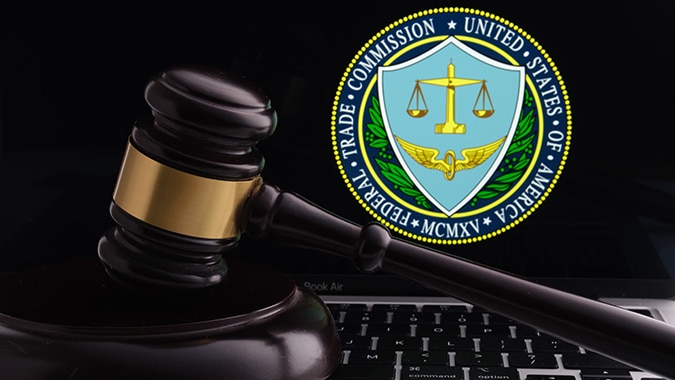– Background: What is Procurement? –
Procurement is the act by which a business can contract its goods or services to the government, generally through a bid process. However, in order to be considered for a procurement opportunity with New Jersey government, whether on the state or local level, a business must first meet certain qualifications to begin the process.
– Qualifications –
To qualify for procurement in New Jersey, every business must have a valid Business Registration Certificate (BRC) with the Department of the Treasury, Division of Revenue and Enterprise Services. Existing businesses without a BRC may find more information on registering at: http://www.state.nj.us/treasury/revenue/busregcert.shtml
Some businesses may have certain qualifications that enhance their likelihood for entering into a procurement contract. Small businesses, businesses located in historically underutilized business zones (HUBZones), and businesses owned by minorities, women, and the socially and economically disadvantaged can utilize specialized programs that improve their chances for gaining procurement at the state and local level. Small businesses in particular can benefit from registering with the Small Business Set-Aside Program, a program which obligates the state to award 25% of its purchase and contracting order dollars to small businesses.
Some programs are only available at the state level, such as the Small Business Administration’s Government Contracting Program. In addition, at the state level, certain agencies require certification to prove that a business falls under one of these categories. For more information on if your business qualifies for certain state and local programs, as well as how to obtain the necessary certification, can be found in the Procurement Opportunities section (pages 49-60) of the Guide to Doing Business in New Jersey (http://www.nj.gov/njbusiness/documents/Doing_Business_in_New_Jersey08.pdf).
– Searching and Applying for Procurement Opportunities –
At the state-level, agencies, commissions, authorities, and state colleges and universities offer procurement for businesses. All current opportunities to pursue procurement with these entities are listed in the Statewide Bid Opportunities Database (https://www1.state.nj.us/TYM_BUISOPP/bo/search.do).
No overarching database exists for procurement opportunities at the county and municipal level. Instead, opportunities may be found through databases on each county or municipal website.
Businesses can also apply for procurement opportunities through the state and local procurement databases. In order to apply, a business must submit a proposal compliant with the requirements and specifications listed for the procurement. The proposals are then assessed based on price, specifications, terms and conditions, and other factors.
Once all proposals for the procurement have been evaluated, the businesses that bid for the procurement will receive a Notice of Intent to Award that specifies which business(es) will be awarded the contract.
– Procurement Aid through NJBIA –
Members of the New Jersey Business and Industry Association can provide guidance on local procurement processes, regulations, and rules through NJBIA’s new Municipal Assistance Program. Member companies may email member411@njbia.org or call 1-800-499-4419, extension 3 for assistance.
– Special Note for Construction Procurement Opportunities –
Businesses that seek procurement opportunities concerning construction must obtain a surety bond. A surety bond further pre-qualifies a business by ensuring that the business meets certain standards that would enable it to complete the contract.
A business must meet with a bonding agent, generally one that specializes in that business’s industry, and discuss its project plans in order to obtain a surety bond. A list of possible bonding agents can be found in the Procurement Opportunities section (page 56) of the Guide to Doing Business in New Jersey (http://www.nj.gov/njbusiness/documents/Doing_Business_in_New_Jersey08.pdf).
Before meeting with a bonding agent, it is recommended that a business acquire a Certified Public Accountant who can prepare the business’s required financial statements.
Small contractors may acquire surety bonds by applying to the U.S. Small Business Administration (SBA) under the Surety Bond Guarantee program. In order to obtain a bond through the SBA, a small contractor must qualify as a small business and have principals of good character. For more information on the Surety Bond Guarantee program, contact the SBA District Office at 215-580-2703.
– Federal Procurement Aid through the Small Business Administration –
The Small Business Administration works with federal agencies to give small businesses at least 23% of prime government contracts. As part of this program, the SBA has specific goals to award 5% of these contracts to small disadvantaged businesses, 5% to women-owned businesses, 3% to service-disabled veteran-owned businesses, and 3% to businesses in HUBZones. The SBA also aids small businesses in becoming more competitive, as well as in finding and obtaining federal procurement opportunities. More information about qualifying for the SBA’s aid and its programs can be found in the Contracting section (pages 47-52) of the Small Business Administration’s Resource Guide for Small Business (https://www.sba.gov/sites/default/files/files/resourceguide_3131.pdf).
Feb. 28, 2017
